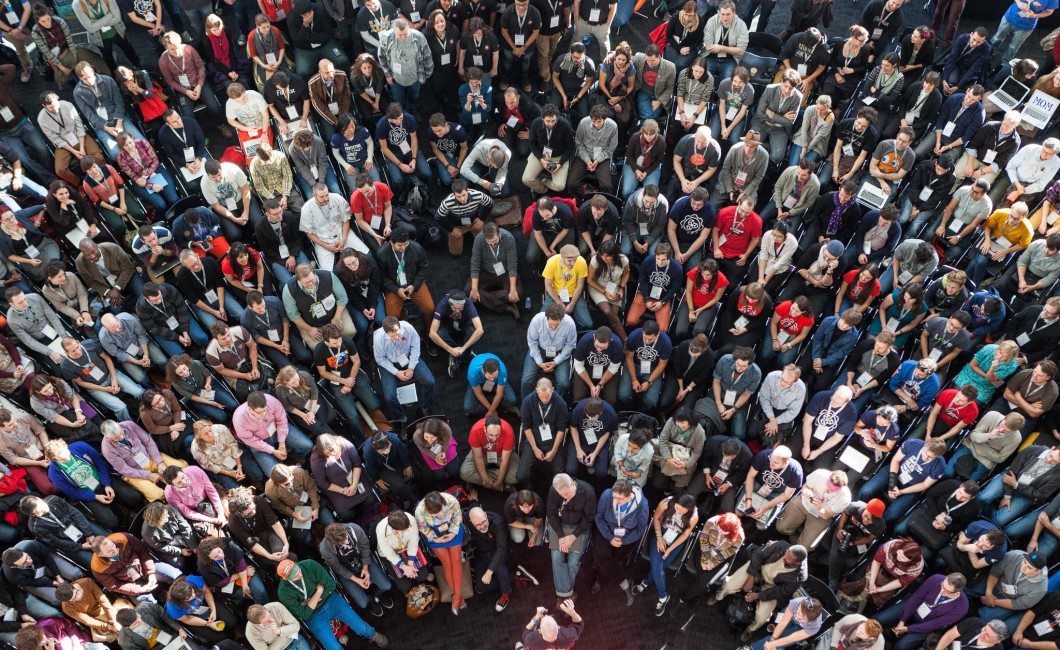Introduction
On my to-do list for the last year has been ‘write up what I learned at Mozilla’. I didn’t want this anniversary week to go by without writing something, so despite this being nowhere near as comprehensive as what I’d like to write, it at least shifts that item from my to-do list!
The following are three (plus one bonus) personal learning points that I felt were some of my main takeaways from the three years I spent working for the Mozilla Foundation. After being a volunteer from 2011, I became a member of staff from 2012-15, working first as Badges & Skills Lead, and then transitioning to Web Literacy Lead.
1. Working openly by default is awesome
Mozilla is radically open. Most meetings are available via public URLs, notes and projects are open for public scrutiny, and work is shared by default on the open web.
There are many unexpected benefits through doing this, including it being a lot easier to find out what your colleagues are working on. It’s therefore easy to co-ordinate efforts between teams, and to bring people into projects.
In fact, I think that working openly is such an advantage, that I’ve been advocating it to every client I’ve worked with since setting up Dynamic Skillset. Thankfully, there’s now a fantastic book to help with that evangelism entitled The Open Organization by the CEO of Red Hat, a $2bn Open Source tech firm.
2. The mission is more important than individuals
This feels like an odd point to include and could, in fact, be seen as somewhat negative. However, for me, it was a positive, and one of the main reasons I decided to spend my time volunteering for Mozilla in the first place. When the mission and manifesto of an organisation are explicit and publicly-available, it’s immediately obvious whether what you’re working on is worthwhile in the eyes of your colleagues.
No organisation is without its politics, but working for Mozilla was the first time I’d experienced the peculiar politics of Open Source. Instead of the institutional politics of educational institutions, these were politics about the best way to further the mission of the organisation. Sometimes this led to people leaving the organisation. Sometimes it led to heated debates. But the great thing was that these discussions were all ultimately focused on achieving the same end goals.
3. Working remotely is hard
I do like working remotely, but it’s difficult — and for reasons you might not immediately expect. The upsides of remote working are pretty obvious: no commute, live wherever you like, and structure your day more flexibly than you could do if you were based in an office.
What I learned pretty quickly is that there can be a fairly large downside to every interaction with colleagues being somewhat transactional. What I mean by that is there’s no corridor conversations, no wandering over to someone else’s desk to see how they are, no watercooler conversations.
There are huge efficiency gains to be had by having remote workers all around the globe — the sun never sets on your workforce — but it’s imperative that they come together from time to time. Thankfully, Mozilla were pretty good at flying us out to San Francisco, Toronto, and other places (like Portland, Oregon) to work together and have high-bandwidth conversations.
Perhaps the hardest thing about working remotely is that lack of bandwidth. Yes, I had frequent video conversations with colleagues, but a lot of interaction was text-based. When there’s no way to read the intention of a potentially-ambiguous sentence, dwelling on these interactions in the solitude of remote working can be anxiety-inducing.
Since leaving Mozilla I’ve read some studies that suggest that successful long-term remote working is best done based in teams. I can see the logic in that. The blend I’ve got now with some work being done face-to-face with clients, and some from home, seems to suit me better.
(4. Technical skills are underrated)
This is a bonus point, but one that I thought I should include. As you’d expect, Mozilla was an environment with the most technology-savvy people I’ve ever had the pleasure to work with. There were some drawbacks to this, including an element of what Evgeny Morozov would call ‘technological solutionism’, but on the whole it was extremely positive.
There were three specific ways in which having tech-savvy colleagues was helpful. First, it meant that you could assume a baseline. Mozilla can use tools with its staff and volunteers that may be uncomfortable or confusing for the average office worker. There is a high cognitive load, for example, when participating in a meeting via etherpad, chat, and voice call simultaneously. But being able to use exactly the right tool for the job rather than just a generic tool catering to the lowest common denominator has its advantages.
Second, tech-savvy colleagues means that things you discuss in meetings and at work weeks get prototyped quickly. I can still remember how shocked I was when Atul Varma created a version of the WebLitMapper a few days after I’d mentioned that such a thing would be useful!
The third point is somewhat related to the first. When you have a majority of people with a high level of technical skills, the default is towards upskilling, rather than dumbing down. There were numerous spontaneous ways in which this type of skillsharing occurred, especially when Mozilla started using GitHub for everything — including planning!
Conclusion
Although I’m genuinely happier than I’ve ever been in my current position as a self-employed, independent consultant, I wouldn’t trade my experience working for Mozilla for anything. It was a privilege to work alongside such talented colleagues and do work that was truly making the web a better place.
One of the reasons for writing this post was that I’ve found that I tend to introduce myself as someone who “used to work for Mozilla”. This week, one year on, marks a time at which I reflect happily on the time I had there, but ensure that my eyes are on the future.
Like so many former members of staff, I’ve found it difficult to disentangle my own identity from that of Mozilla. I purposely took this past year as time completely away from any Mozilla projects so I could gain some critical distance — and so that people realised I’d actually moved on!
So who am I? I’m Dr. Doug Belshaw, an independent consultant focusing on the intersection of education, technology, and productivity. But I remain a Mozillian. You can find me at mozillans.org here.
Image CC BY Paul Clarke (bonus points if you can spot me!)



